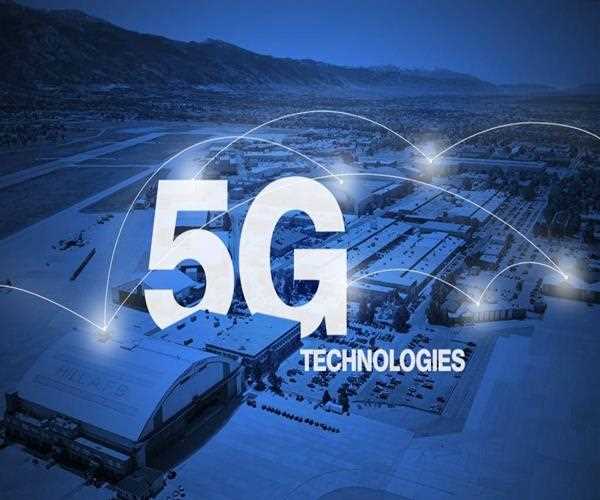
11-Dec-2019
The future of apps is less about downloading, and more about 5G streaming
The new era of technological advancements has brought a lot of changes in the way we live and communicate with our peers. Every day, we see new technologies that bring us closer together and make our lives easier.
Before the telecommunication revolution hit the market, people used the actual letters and long-distance-scattering mediums to contact with one another. It was a painstaking process that wasn't exactly contributing to the development of other industries.
However, after this revolution that we've mentioned above, contacting one another in different parts of the world became much easier. Especially after the invention of the internet, which took a direct attack on conventional communications and other industries as well.
Another pretty big thing that's contributing to this development is the improvement of our personal devices - smartphones. Times have passed when the phones we carried with ourselves were these giant bricks with the smallest screens and long antennas. Now, the iPhones, Galaxy phones, and other smartphones are still giant, but with the majority of their body dedicated to just the display.
Lightning-fast cellular connections
And what's great about modern smartphones is that they're great with cellular connections. Almost every recent smartphone has a 4G LTE bandwidth embedded in their antennas, which enables them to establish 200-300 Mbps connections.
And as the smartphone manufacturers are further improving their products, they're beginning to incorporate a new, 5G connection in some of them. And the prospects with 5G networks are staggering! According to Qualcomm President Cristiano Amon, the phones won't need to be these power machines that they are today because the network streaming can totally support the majority of apps on the App Store and Play Store.
But before we jump into this bizarre and exciting announcement, let's see what a normal person with a brief technological awareness would expect from 5G networks.
What the world expects from 5G
The first thing that comes into everyone's minds when they hear about 5G is its incredible speeds. As mentioned earlier, the LTE connections can top at about 300 Mbps, which is already a very high speed. However, it's not even close to what 5G can do.
As MKBHD, one of the biggest YouTube tech channels on the platform, shows in his 5G test video, if the conditions are right, the connection speed can way surpass the 1 Gbps mark. In fact, the video shows that the download speed reaches 1.4 Gbps! That is really something, isn't it?
So, that's the actual real-life test that Marques Brownlee did in a 5G-enabled city, Providence, Rhode Island. However, on paper, things are a lot more exciting. Check it out:
- The connection speeds that can achieve 10 Gbps!
- The shortest latency rates for any network at less than 1 ms. which decreases the traffic load and leads to immediate connections;
- Stable, consistent, and lag-free connections all across the world, and many more.
All of those perks are already making this new technology a worldwide hit. However, we haven't even scratched the surface as the further applications of 5G are virtually boundless. And here we come to our point.
What more lies behind it
As Qualcomm President Cristiano Amon puts it, the 5G-enabled phones, just like the brand-new Samsung Galaxy S10 5G, won't be bound by their processing powers - be it RAM, graphics, or even the chipset - since they'll be streaming the apps using the internet connection.
That's right! The huge data centers will be packed with the most powerful processors and other components so that they'll allow every 5G user around the world to stream their preferred apps just like they do with YouTube and Netflix.
What this means is that in some not-too-distant future, our smartphones won't look like this: they will resemble big screen slabs with giant batteries inside them and nothing more. They won't need any computational power since their only real power will come from the internet. And it even implies that we'll have to upgrade them a lot less frequently.
As it turns out, the streaming services are slowly spilling over to other industries and forms of entertainment. For instance, after extensive experience in music, video, and movie streaming, the world of gaming also received this feature.
Google Stadia paving the way
The last year, Google announced its very-first gaming platform - Stadia, which takes the whole industry upside down: with Stadia, you don't need to purchase expensive consoles or PCs to run your favorite games. Just buy their licenses and stream them using your internet connection. The Google data centers around the world will do the rest.
Major issues of 5G
That's basically how 5G app streaming will work when the network becomes widely accepted and applied in various industries. For now, however, there are many drawbacks that put 5G on hold. For instance, only a handful of cities have 5G connections right now; even MKBHD had to drive hundreds of miles to test this network himself. So, not many areas support 5G today.
Another pretty big issue with this technology is that its waves are significantly smaller than the 4G waves. This means that a single 5G antenna can hardly penetrate any building that stands in front of it. If the whole city is to be covered in the 5G network, it's going to take a lot of antennas for it to happen.
But those issues notwithstanding, the future of 5G is looking pretty bright. It promises to change the way we use our smartphones and hopefully, Also, Bluetooth brings the new version 5.1 very recently. it happens soon.
Comments
Join Our Newsletter
Subscribe to our newsletter to receive emails about new views posts, releases and updates.
Copyright 2010 - 2026 MindStick Software Pvt. Ltd. All Rights Reserved Privacy Policy | Terms & Conditions | Cookie Policy
